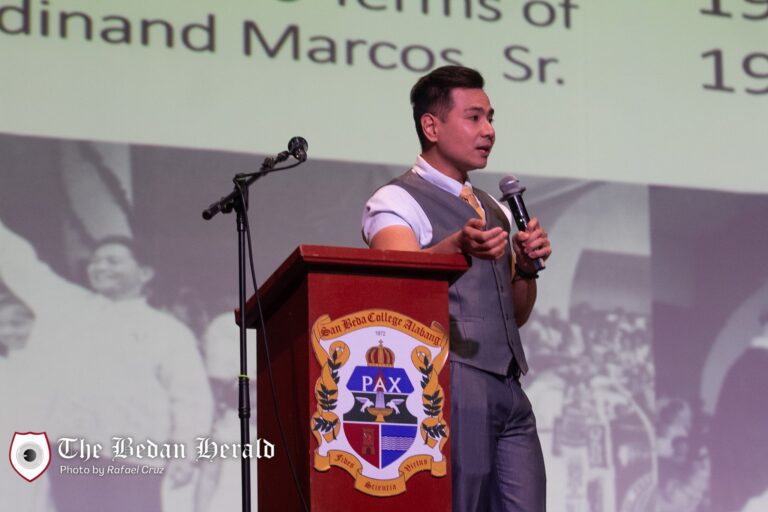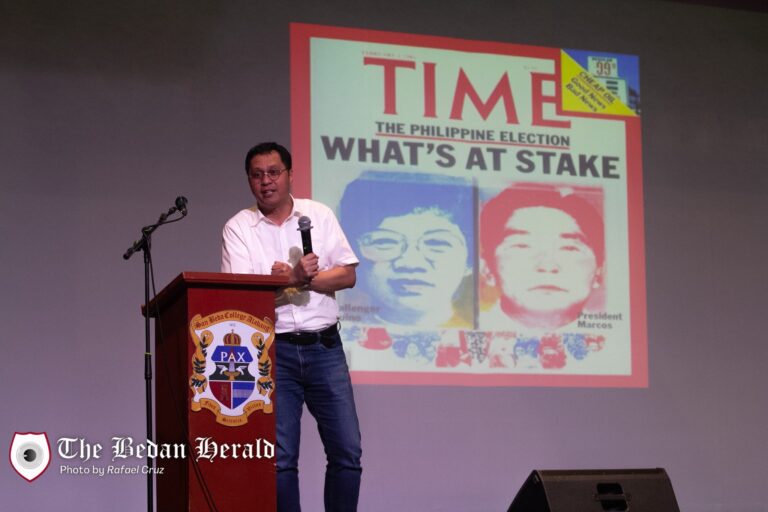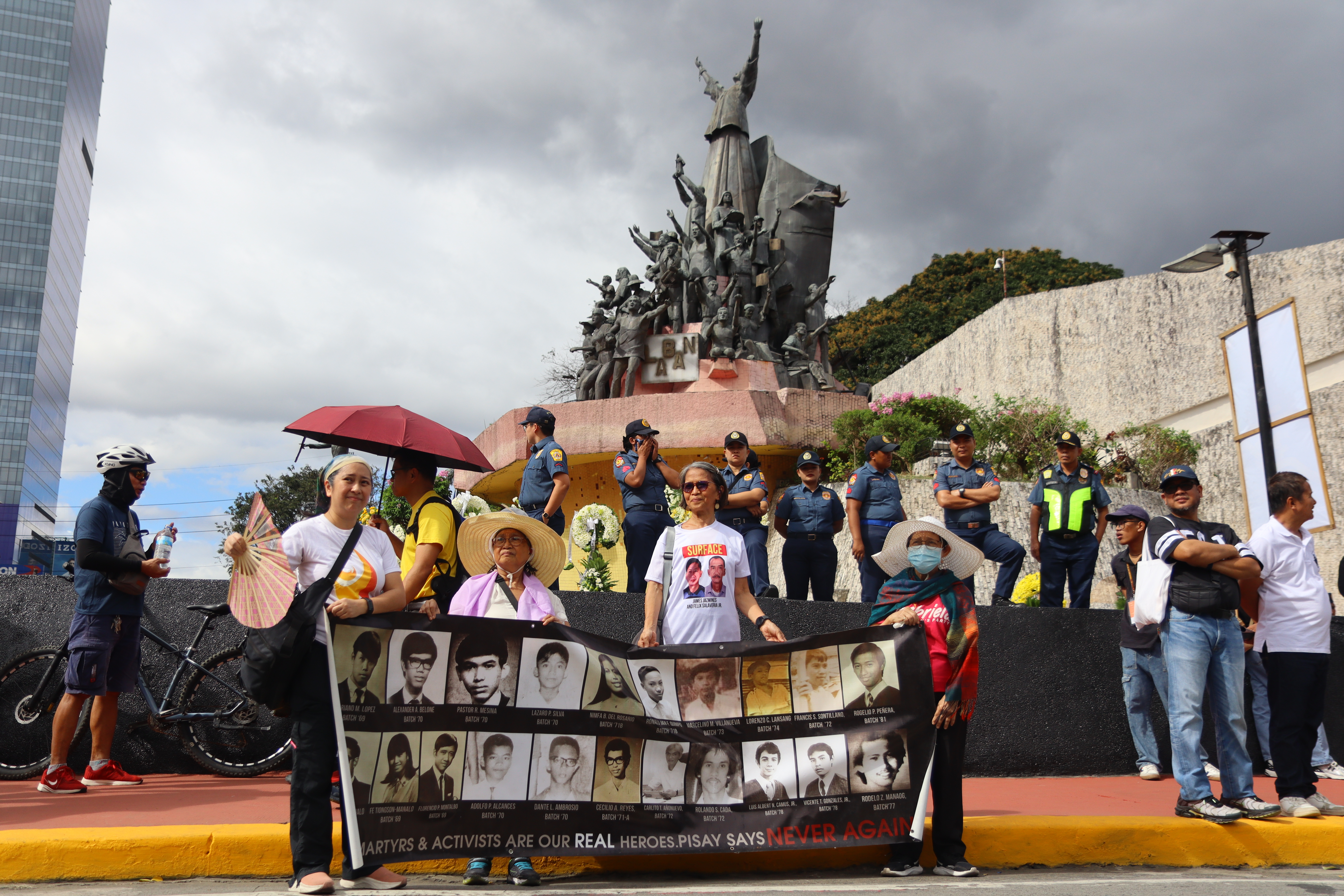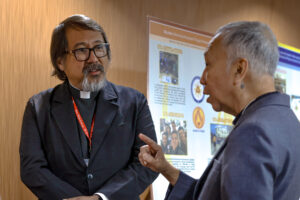By Lindy Lois Tiu | March 1, 2025
"Commemorating EDSA: Universities Fight Back Against Historical Erasure”
“I AM very happy that the president did not declare this day as a special non-working holiday,” said Atty. Juan Ruffo Chong as he ends his talk on Celebrating EDSA: Triumph of the Filipino Spirit.
“It gave the impetus for schools, like San Beda College Alabang, to talk about what really happened.”

The EDSA Revolution is not a mandatory holiday like other historical observances. It is under the president’s prerogative if they declare it as a working or a non-working holiday. In 2023, the holiday was moved from Feb. 25 to Feb. 24 as a special non-working holiday. By 2024, the People Power Revolution anniversary was entirely removed from the list of special non-working holidays. This year, Marcos declared February 25 as a special working holiday—again. This decision sparked an uproar among Filipinos, many of whom were students, who expressed concerns regarding the potential historical erasure in play ever since Ferdinand Marcos Jr. took office.
In response to this, the Filipino youth refused the attempt of burying a part of our history. Multiple universities suspended their classes to take a stand for the People Power. Students from universities without suspension, such as the Polytechnic University of the Philippines (PUP) and Cavite State University, staged a walkout as they shouted “Never Forget.” As for SBCA, a whole-day event was arranged to properly commemorate the sacrifices of the Filipinos 39 years ago.
A Eucharistic Celebration to strengthen the sense of community started the day. Following the mass, Alvin Campomanes, a public historian and an educator, delivered an insightful lecture on the significance of the EDSA Revolution. Students from the Tertiary Department and the School of Law crowded the venue as the second talk started in the Tugade Auditorium, while other students were escorted to the Manny Reyes Hall to watch a livestream instead. A short screening of Isang Larawan offered the students a deeper reflection of this history.

“Why should we celebrate EDSA? Because on February 25, 1986, as silent people, as brutalized people, as scared people, we finally found our voice,” said Francis Isaac, the Editor-in-Chief of PRAKSIS. Celebrating an event as such—one that is the reason for our freedom from oppression—should be a reminder, a testament to courage, a reflection of anger, a symbol of resistance, and an honor to the Filipinos who fought for our rights.
During the open forum, the youth were urged to take action and were asked the question “Ano ang gagawin mo?” Students were reminded that the solution is within us, a lesson that we can learn from the EDSA Revolution.
After all, it is the younger generation that will inherit a country worth fighting for. May this event serve as a reminder for all Filipinos to continue the legacy of the EDSA Revolution, and to never fall victim to the same oppression again.
Volume 30 | Issue 3




